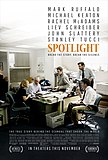Academy Award nomination
| Academy Awards | |
|---|---|
 |
|
| Awarded for | Excellence in cinematic achievements |
| Country | United States |
| Presented by | Academy of Motion Picture Arts and Sciences |
| First awarded | May 16, 1929 |
| Official website | oscar |
|
||||||||||||||||||||||||||||||
|
||||||||||||||||||||||||||||||
|
||||||||||||||||||||||||||||||
Birdman or (The Unexpected Virtue of Ignorance)
The Academy Awards, or "Oscars", is an annual American awards ceremony hosted by the Academy of Motion Picture Arts and Sciences (AMPAS) to recognize excellence in cinematic achievements in the United States film industry as assessed by the Academy's voting membership. The various category winners are awarded a copy of a statuette, officially called the Academy Award of Merit, which has become commonly known by its nickname "Oscar." The awards, first presented in 1929 at the Hollywood Roosevelt Hotel, are overseen by AMPAS.
The awards ceremony was first broadcast to radio in 1930 and televised for first time in 1953. It is now seen live in more than 200 countries and can be streamed live online. The Oscars is the oldest entertainment awards ceremony; its equivalents, the Emmy Awards for television, the Tony Awards for theatre, and the Grammy Awards for music and recording, are modeled after the Academy Awards.
The 88th Academy Awards ceremony was held at the Dolby Theatre on February 28, 2016 and hosted by Chris Rock. A total of 2,947 Oscars have been awarded from the inception of the award through the 87th.
The first Academy Awards presentation was held on May 16, 1929, at a private dinner function at the Hollywood Roosevelt Hotel with an audience of about 270 people. The post-awards party was held at the Mayfair Hotel. The cost of guest tickets for that night's ceremony was $5 ($70 in 2017 dollars). Fifteen statuettes were awarded, honoring artists, directors and other participants in the film-making industry of the time, for their works during the 1927–28 period. The ceremony ran for 15 minutes.
Winners had been announced to media three months earlier; however, that was changed for the second ceremony in 1930. Since then, for the rest of the first decade, the results were given to newspapers for publication at 11:00 pm on the night of the awards. This method was used until an occasion when the Los Angeles Times announced the winners before the ceremony began; as a result, the Academy has, since 1941, used a sealed envelope to reveal the name of the winners.
...
Wikipedia






